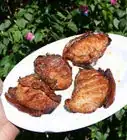This article was co-authored by wikiHow Staff. Our trained team of editors and researchers validate articles for accuracy and comprehensiveness. wikiHow's Content Management Team carefully monitors the work from our editorial staff to ensure that each article is backed by trusted research and meets our high quality standards.
There are 13 references cited in this article, which can be found at the bottom of the page.
This article has been viewed 447,080 times.
Learn more...
Competitive eating contests give you the chance to win prize money and enjoy a very hearty meal. Eating contests come in all forms. You may be competing over spiciness, speed, quantity, or some combination of factors. To blow away your competition and win contests, you’ll need to prepare in the months and weeks before the contest. Adhere to a strict training plan right before the contest starts and follow a clear strategy during the contest itself. Soon enough, you’ll be sporting a gold medal!
Steps
Doing Long-Term Preparation
-
1Consult with your doctor to make sure you can participate. Eating contests can be tough on your digestive system and overall health. You’ll also need to exercise regularly to stay healthy while training. Either call or make an appointment with your doctor to have a conversation about whether you can handle the contest.
-
2Pick your contest. Go online and use your favorite search engine to find contests near you, or in the closest major city. Choose a contest where you’ll be eating food you enjoy, as this will make training and competing easier. Decide whether you want to compete over speed and quantity, or something else.
- Most contests will require you to try to eat the largest amount of a certain food in a timed competition. This means you’ll need to train to eat a lot of food as quickly as you can.
- Other contests may just want you to eat their Mega-Hot spicy wings.
- Make sure it’s a contest you’re allowed to compete in. Some are reserved for “amateurs,” and they’ll bar professional eaters from competing.[1] This means that if you’ve already earned money from winning an eating contest, you won’t be allowed in.[2]
Advertisement -
3Learn the rules of the contest to train properly. There are lots of strategies competitors use to win, but some won’t be allowed at certain competitions. Check your competition’s website or call to ask about specific strategies and requirements, including:[3]
- Dunking, which means that you “dunk” foods into liquids before putting them in your mouth. This makes solids easier to chew and swallow.
- Anything-goes eating, which allows you to do anything you want to eat food faster.
- Picnic-style eating, which means that you need to eat food how it’s meant to be eaten. You can’t dunk, mash food up into balls, or separate items that go together (a hotdog and a bun, for example).
-
4Set up a strategy designed for your contest. Once you know the rules, plan for them. Write down all the different elements of the meal you’ll be eating, and think about how you’ll tackle each one. Determine what parts of the contest will be easiest and hardest for you based on your current eating habits.[4]
- For example, if you know your mouth gets dry when you eat lots of bread, stuffing buns in your mouth is going to be tough. Plan to address this in training, and strategize by sipping liquids with the breads.
-
5Increase your jaw strength by chewing faster. As soon as you’ve signed up for your contest, begin doing long-term training. Chew gum whenever you can. When you eat, chew faster. These exercises will help strengthen your jaw.[5]
-
6Learn to swallow bigger bites for speed eating. Start by training with water. Take a big gulp, tilt your head back, and allow gravity to help you swallow. Increase the amount of water until your mouth is completely full, and try to swallow this gulp. Practice daily.[6]
- Once you’re comfortable with water, graduate to soft foods like rice and quinoa. You can then do more difficult foods, like steak. Move slowly through this process, as you don’t want to choke.
- Never do this kind of training without another person present. If you do have a problem, you need to be able to get help quickly.
-
7Train with low-calorie, high-fiber foods. If your eating contest will judge you on the quantity of food you can eat, you’ll need to work on expanding your stomach. Begin eating large amounts of low-calorie, high-fiber foods that fill you up quickly.[7]
- How much you need to eat depends on your size and competition. Some competitive eaters will eat several pounds of cooked or raw cabbage, for example, in a single sitting while in training.[8]
- High-fiber foods will make you feel fuller earlier, and you’ll stay full longer. This will make training with them more difficult than with other foods, because you’ll be fighting against that feeling of fullness.[9]
- You can also train with fruits like grapes and melons, as well as steamed mixed vegetables.
- While some competitive eaters also train by chugging gallons of water or milk in a single sitting, this could be dangerous for your health. Stick with the cabbage.
Training Right before the Contest
-
1Use training sessions to figure out which techniques work for you. Try different strategies, such as dunking, tilting your head back to swallow, or eating lots of small bites that you can swallow without lots of chewing. Pick the ones that work best for you.[10]
- Remember to stick to the rules of the competition in all your training sessions.
-
2Eat the exact food from the contest two weeks out. Use the competition website or call to find out the exact brands and preparation of the foods you’ll be eating. Mimic this meal as closely as you can to get used to the food. Don’t eat the amount of food you’ll be eating at the contest, however.[11]
- This will help you anticipate any trouble spots with the meal.
- You should do this a minimum of one time, and a few more times if you feel like you need the extra preparation.
-
3Begin expanding your stomach one week before the contest. During the beginning of the week, eat one extra large meal during the day, then keep your other meals normal. On days four and five, you should have two large meals only.[12]
- The actual meal sizes will depend on you and your typical portions. As a general rule, try doubling what you’d normally have.
- For the beginning of the week, consider eating a light breakfast and having the large meal at lunch. You can then eat a normally sized dinner.
- For the end of the week, have your large meals in the mid-morning and mid-afternoon.
-
4Eat a max-out meal 22 hours before the contest. A “max-out” meal means that you should eat as much as you physically can in one sitting. Make this a low-calorie meal with high-fiber foods. Be sure to have this meal no less than 18 hours before the beginning of the contest.[13]
- Visit an all-you-can-eat salad bar and continue eating until you’re at the point of discomfort. You don’t want to go too far, however, and make yourself sick.
- This is the last real meal you should have before the contest.
-
5Drink water and get sleep the night before. Wait an hour after your max-out meal, then begin drinking some water to help your digestion. Get as much sleep as you can to feel rested on the morning of the contest.[14]
-
6Avoid eating solid foods on the morning of the contest. Wake up several hours before the contest begins to get your body moving. Drink a large glass of water and eat a non-solid breakfast an hour after you get up.[15]
- For non-solid foods, try a protein shake or a yogurt.
- If your contest is in the late afternoon or evening, you can add some light solids to your breakfast, such as eggs or cereal.
- You may also want to exercise before the contest, as this could increase your hunger level. Don’t overdo it, as you don’t have a lot in your body to keep you going. Try a brisk walk or a light jog for 20 minutes.
Strategizing during the Contest
-
1Use a stopwatch to keep track of your time. The contest officials will almost certainly keep time for you. They’ll also periodically tell competitors how much time is left. Still, it’s a good idea for you to have your own watch. Place it somewhere you can easily see it while eating.[16]
-
2Be sure to follow the rules. Remind yourself of the rules before the contest begins. Don’t break any of them, as this will automatically disqualify you from most contests.[17]
-
3Listen to music to stay focused. So long as it’s not against the rules, bring headphones and something to play music on. You can create a special playlist designed to help you focus. Be sure to put music that pumps you up at the end of the list, as you’ll need the extra help.[18]
- If you need ideas for songs, look online for “music to keep you going during an eating contest.” Music for workouts will also work well.
-
4Eat proteins first. Attack the meats while they’re still warm, fresh, and taste good. These will also be some of the heavier elements of the contest, so it’s important to get these down as fast as you can.[19]
-
5Move on to carbs next. Once you’ve finished the meats, you can move on to the carbs (such as buns and french fries). These pair well with liquid, so you can sip on something to help them go down easier.[20]
-
6Eat fast in the beginning but finish strong. Take advantage of your high energy at the beginning of the contest and eat quickly. Once you’ve gotten past that initial burst of energy, settle into a steady rhythm. Use this rhythm to help push you through to the end. You want a completely clean plate when it’s all over![21]
-
7Add new flavors with different beverages to keep yourself going. Usually, contests will allow you to pick your beverages. Plan to have a cup of water, something flavored but non-carbonated, and something carbonated and flavored. To keep your taste buds energized throughout the contest, drink the water in the beginning, the non-carbonated beverage next, and something like a soda last.[22]
-
8Hop up and down to swallow faster. If you’re allowed to stand up and move around, use this move to allow gravity to help you out. Be sure it doesn’t interfere with the rhythm of you picking up food and taking new bites, however. [23]
- Only try this if you found that it worked for you in training.
-
9Press against your stomach to push food lower. If you start really feeling full, gently push on your stomach. You may be able to move the food down slightly, giving you more room.[24]
Eating Contest Training Schedules and Max Out Meal Ideas
Community Q&A
-
QuestionIf the challenge involves meat and bread, does making it into a sandwich help?
 ShortytailCommunity AnswerIt does help, but it's best to ask the host of the contest if it's allowed.
ShortytailCommunity AnswerIt does help, but it's best to ask the host of the contest if it's allowed. -
QuestionWill I get a stomachache if I get too full?
 Community AnswerThis is very likely, yes.
Community AnswerThis is very likely, yes. -
QuestionWill I get fat during the process?
 Community AnswerEating excessively one time for a contest will not make you gain weight, but you don't want to make a habit of it.
Community AnswerEating excessively one time for a contest will not make you gain weight, but you don't want to make a habit of it.
Warnings
- Don’t sign up for more than one or two contests per month. You should also train with lower-calorie foods when you can, and make sure you maintain a very steady exercise plan.⧼thumbs_response⧽
References
- ↑ http://www.foodchallenges.com/eating-contest-tips/analyze-contest-details-plan-ahead/
- ↑ http://www.foodchallenges.com/food-challenges-101/defining-the-term-professional-eater/
- ↑ http://www.foodchallenges.com/eating-contest-tips/analyze-contest-details-plan-ahead/
- ↑ http://www.foodchallenges.com/before-the-challenge/ultimate-mindset-win-before-you-begin/
- ↑ http://www.foodchallenges.com/tips/how-to-increase-your-jaw-strength/
- ↑ http://www.foodchallenges.com/tips/how-to-train-yourself-to-eat-food-faster/
- ↑ http://www.cbsnews.com/news/how-competitive-eating-affects-the-body/
- ↑ http://www.popsci.com/scitech/article/2003-11/why-do-thin-guys-always-seem-win-eating-contests
- ↑ https://www.helpguide.org/articles/healthy-eating/high-fiber-foods.htm
- ↑ http://www.foodchallenges.com/eating-contest-tips/how-to-train-for-an-eating-contest/
- ↑ http://www.foodchallenges.com/eating-contest-tips/how-to-train-for-an-eating-contest/
- ↑ http://www.foodchallenges.com/tips/how-to-expand-your-stomach-using-food/
- ↑ http://www.foodchallenges.com/tips/how-to-expand-your-stomach-using-food/
- ↑ http://www.foodchallenges.com/before-the-challenge/24-hours-before-your-eating-competition/
- ↑ http://www.foodchallenges.com/before-the-challenge/24-hours-before-your-eating-competition/
- ↑ http://www.foodchallenges.com/strategies/basic-strategy-for-winning-food-challenges/
- ↑ http://www.foodchallenges.com/eating-contest-tips/analyze-contest-details-plan-ahead/
- ↑ http://www.foodchallenges.com/strategies/basic-strategy-for-winning-food-challenges/
- ↑ http://www.foodchallenges.com/strategies/basic-strategy-for-winning-food-challenges/
- ↑ http://www.foodchallenges.com/strategies/basic-strategy-for-winning-food-challenges/
- ↑ http://www.foodchallenges.com/strategies/basic-strategy-for-winning-food-challenges/
- ↑ http://www.foodchallenges.com/strategies/basic-strategy-for-winning-food-challenges/
- ↑ http://abcnews.go.com/Health/eating-win-things-competitive-eating/story?id=19571743#3
- ↑ http://abcnews.go.com/Health/eating-win-things-competitive-eating/story?id=19571743#3
About This Article
If you want to win an eating contest, start training to decide which techniques work best for you. For example, some eaters tilt their heads back to swallow with ease, while others dunk their food in water to soften it. About 2 weeks before the competition, eat a large meal consisting of the exact food that you'll be eating in the competition. Pay attention to any problems that you have while eating, and think about how you can correct those problems during the competition. Then, a week before the competition, start eating 1-2 extra large meals throughout the day to expand your stomach size. One day before the competition, eat an extra large meal of high-fiber and low calorie food, such as salad, as your last meal before the competition. For tips on doing long-term training and strategizing during the contest, read on!

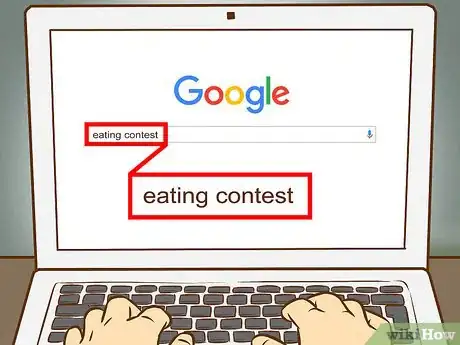

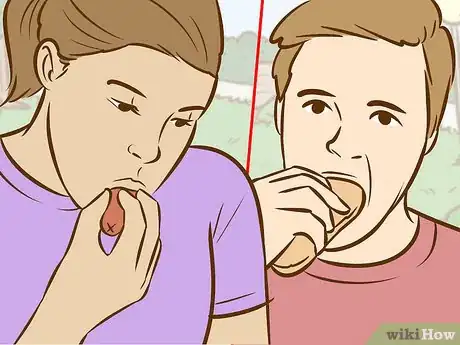
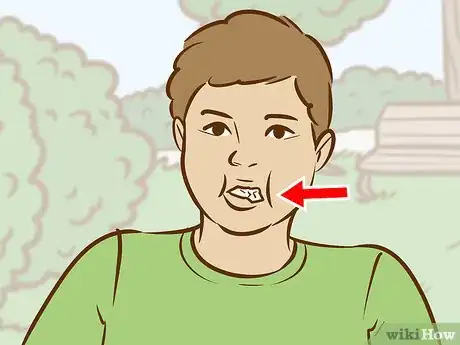
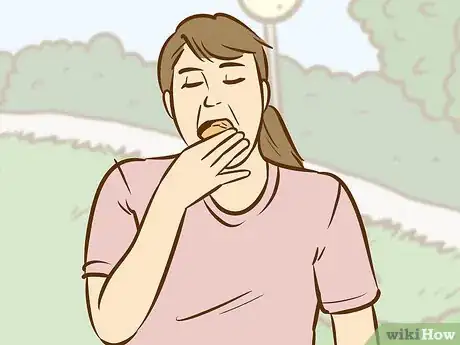
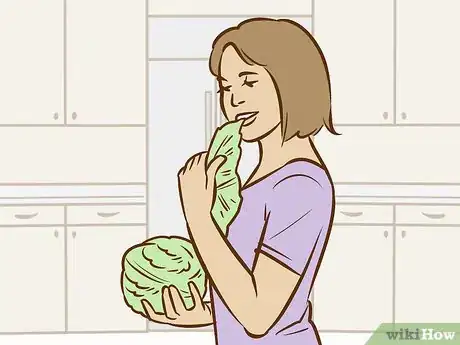

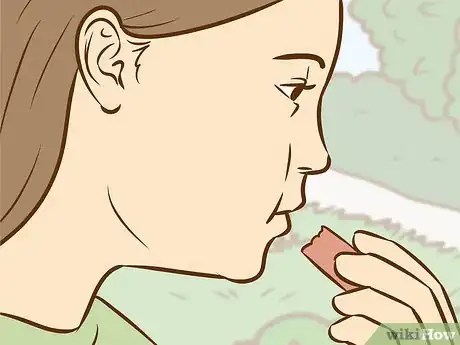
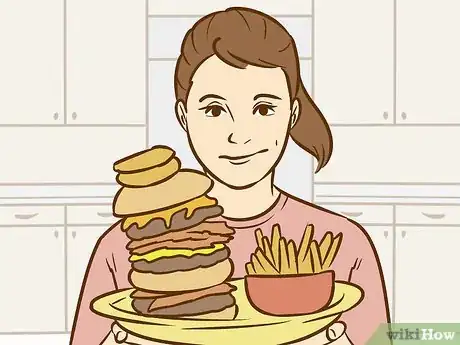
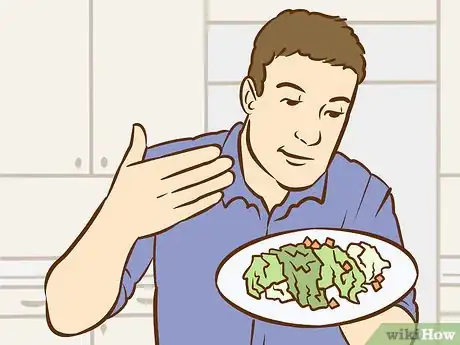
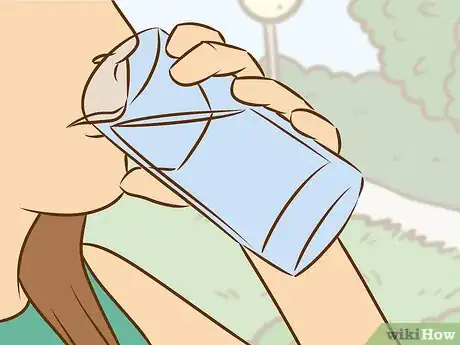
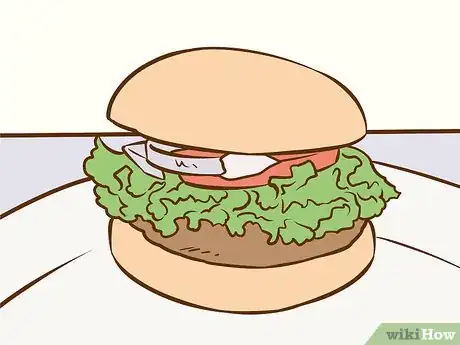
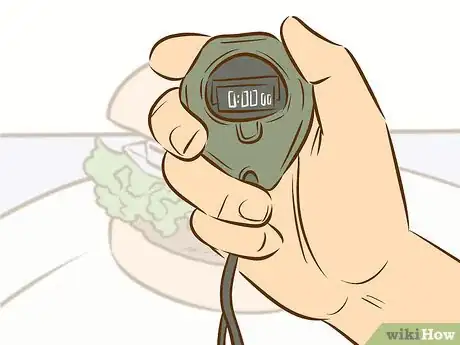

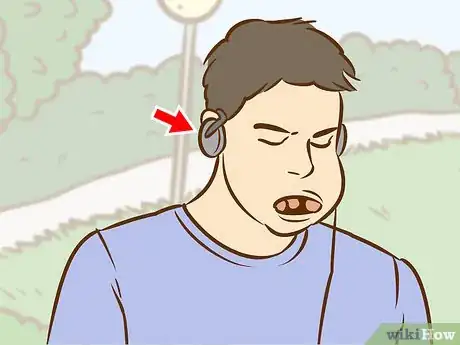
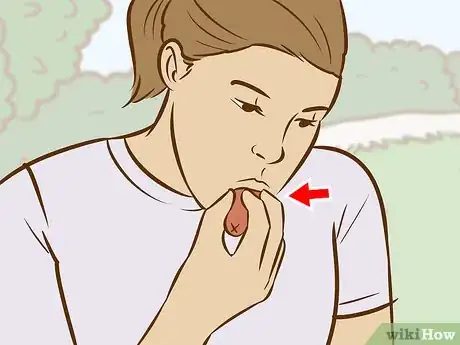
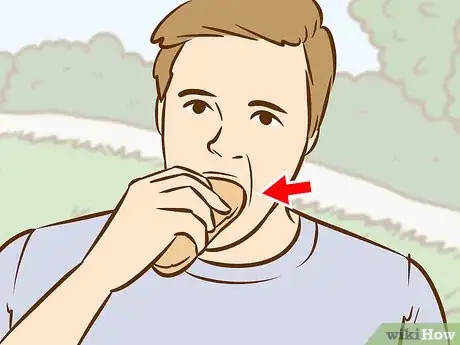
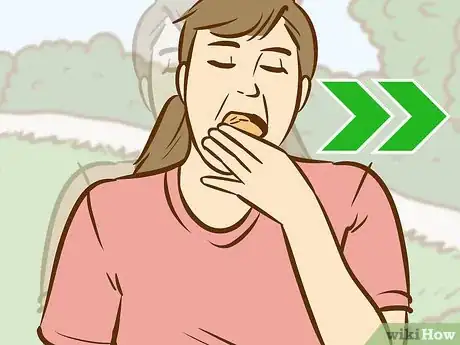


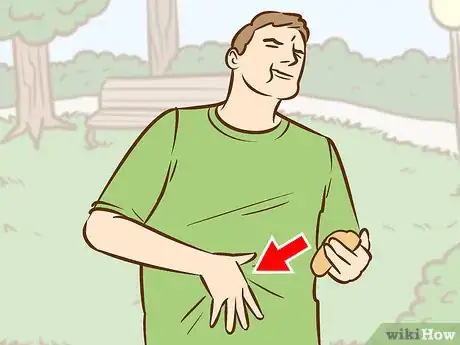
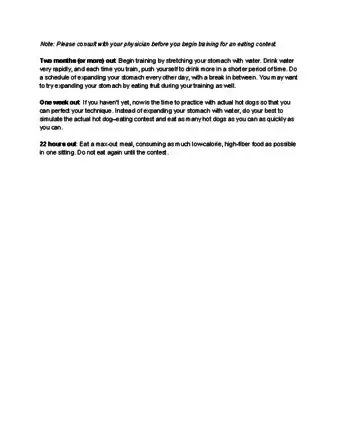
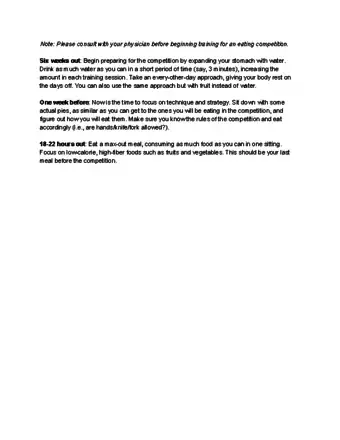
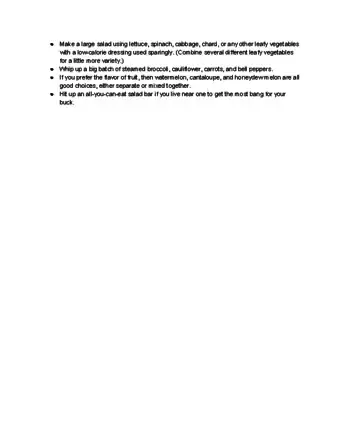
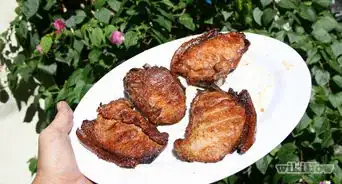







-Step-26-Version-2.webp)










